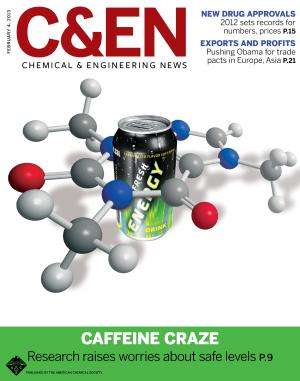Study finds popular energy drinks trigger caffeine jitters

The growing popularity of energy drinks—and deaths linked to those products—are fostering new concerns about how much caffeine people can safely consume, according to the cover story in the current edition of Chemical & Engineering News. C&EN is the weekly newsmagazine of the American Chemical Society, the world's largest scientific society.
Lauren K. Wolf, C&EN associate editor, points out that stories have surfaced with increasing frequency in recent years about deaths and emergency room visits linked to caffeinated energy drinks. Sales of Red Bull Energy Drinks, Monster Energy and other products have grown from virtually nothing a decade ago to almost $10 billion in 2012. Increased health concerns have accompanied that growth, the story points out. Emergency room visits linked to energy drinks, for instance, increased to 20,000 in 2011, up 36 percent from the previous year. The U.S. Food and Drug Administration is investigating, but manufacturers insist their products are safe.
The article focuses on the difficulty in determining safe consumption levels for caffeine. Scientists have found that the toxic dose of caffeine is approximately 10 grams—equivalent to about 130 cups of coffee. But it can vary greatly from person to person. Wolf notes that the variation results from differences in how each person's body processes caffeine. The human body removes caffeine at different rates because of age, weight, gender and other factors, such as use of cigarettes. Thus, it is very difficult to set a definitive value for safe consumption of caffeine, the article states.
More information: Article: "Caffeine Jitters"


















